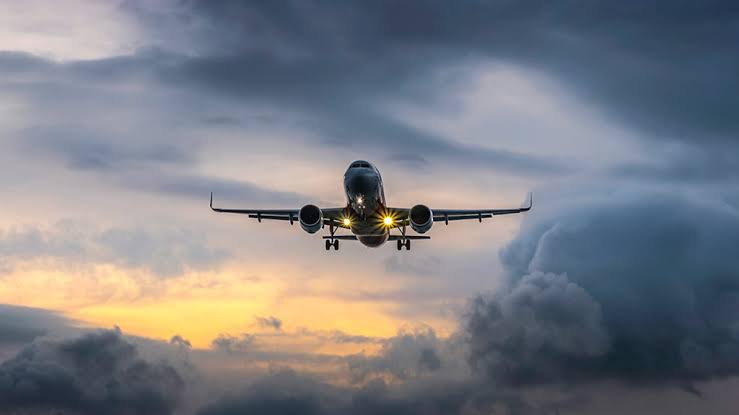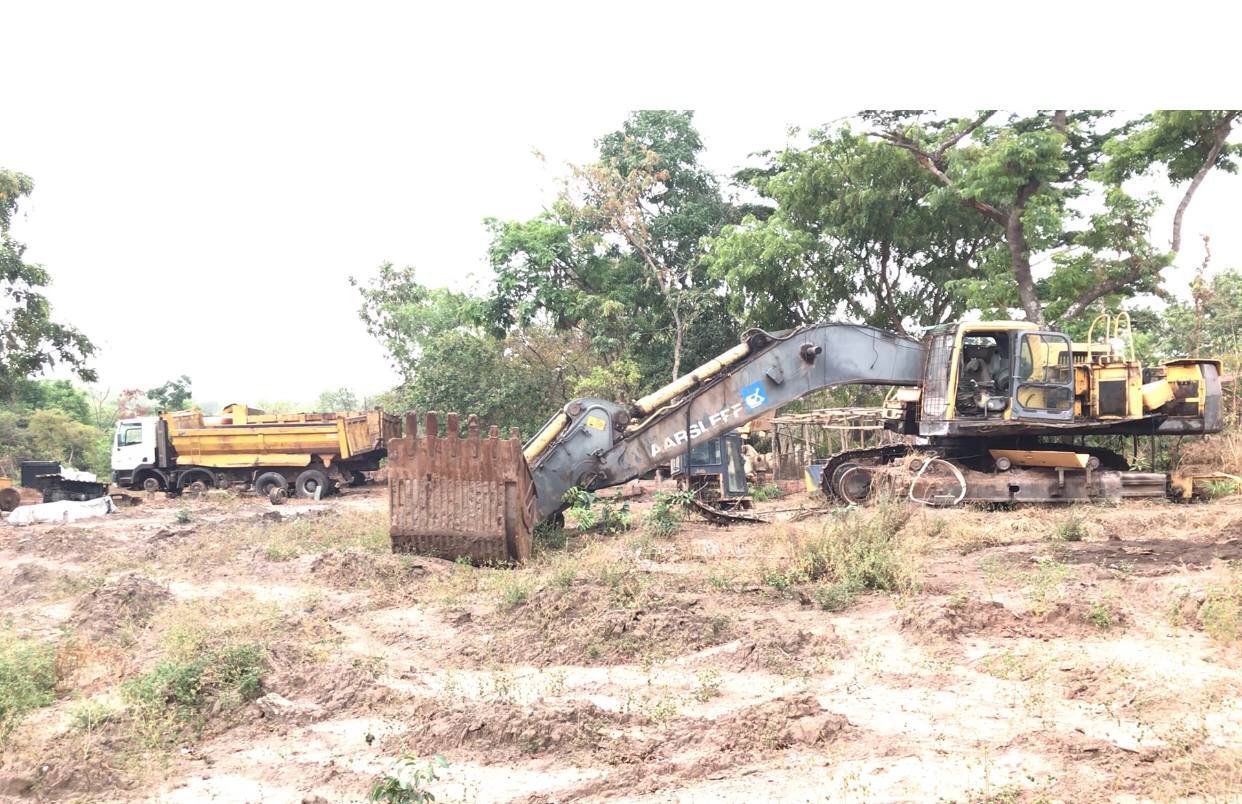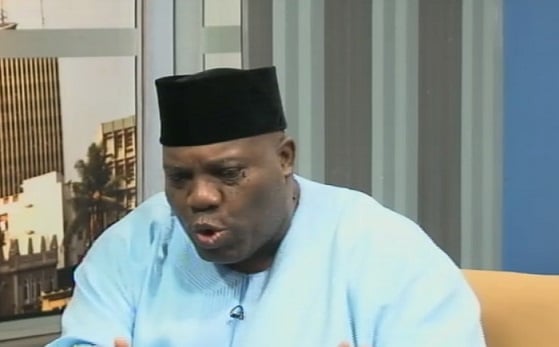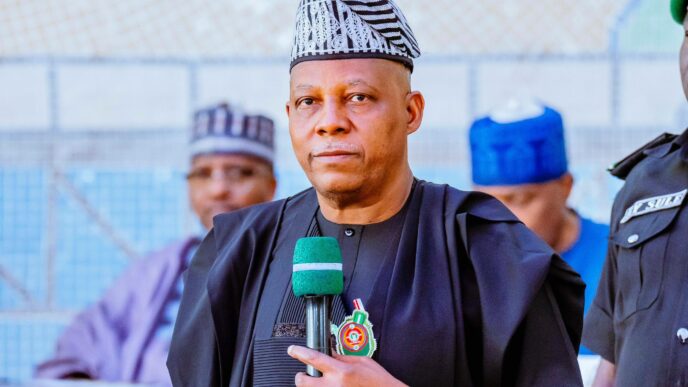The Nigerian aviation industry has experienced a rollercoaster year in 2024.
From domestic flight mishaps raising safety concerns to the federal government’s game-changing deal with Boeing, an aircraft manufacturer in the United States — the sector has been in the spotlight.
Here is a look at some of the major events in Nigeria’s aviation industry in 2024.
DOMESTIC FLIGHT MISHAPS
Advertisement
2024 has been a year marred by a series of domestic flight mishaps that have raised serious concerns about aviation safety in Nigeria. Several flights faced emergency landings, some with technical failures, while another was deadly.
On April 23, a Dana Air flight veered off the runway at Lagos airport, prompting Festus Keyamo, the minister of aviation and aerospace development, to direct an immediate suspension of the airline’s operations.
Speaking in an interview on April 26, Keyamo said the airline has been flying with an unhealthy status for a while, with an audit report carried out under his predecessor showing that Dana Air was unfit to fly.
Advertisement
Six months later, the aviation sector recorded a deadly crash after an East Wind Aviation helicopter, hired by the Nigerian National Petroleum Corporation (NNPC), plunged into the Atlantic Ocean in Rivers state, on October 24.
The helicopter had eight passengers on board, with only five bodies recovered.
On December 17, the Nigeria Safety Investigation Bureau (NSIB) said the helicopter violated aviation regulations, as preliminary findings showed it was not equipped with a flight data recorder (FDR).
A string of other technical failures followed in quick succession, as Air Peace was forced to turn back to Benin mid-air on its way to Abuja after experiencing a technical snag shortly after takeoff on November 4.
Advertisement
Another mid-air incident occurred on December 4 when an Abuja-bound Max Air aircraft made an emergency landing after one of its engines caught fire.
With two weeks left in 2024, the aviation industry recorded another incident involving a cargo aircraft — but there was no casualty.
The aircraft, operated by Allied Air, crash-landed at the Nnamdi Azikiwe International Airport (NAIA), Abuja, after one of its landing gears failed on December 11.
NSIB has commenced an investigation to ascertain the cause of the crash.
Advertisement
NIGERIA’S INTERNATIONAL ROUTE EXPANDED
While safety concerns dominated headlines, there were also positive strides in Nigeria’s aviation industry in 2024.
Advertisement
One notable development was the expansion of Air Peace’s international reach.
On March 30, Air Peace began direct flight operations from Lagos to Gatwick Airport in London, United Kingdom (UK), marking a major milestone for the Nigerian carrier.
Advertisement
About a month later, the federal government approved Air Peace’s direct flight from Abuja to London on April 25.
Also, on October 1, Emirates, the United Arab Emirates (UAE) flag carrier, resumed flight operations to Nigeria.
Advertisement
The development comes almost two years after the suspension of operation by the airline.
NIGERIA-UK SHOWDOWN OVER LONDON HEATHROW AIRPORT
The Nigerian government and the United Kingdom disagreed over Air Peace’s application for direct flights to London Heathrow Airport.
While Air Peace flies to Gatwick Airport, the airline’s preferred destination is London Heathrow, the UK’s busiest airport.
On August 11, TheCable reported that Keyamo wrote to Louise Haigh, the UK secretary of state for transport, over the refusal of the British government to give Air Peace a slot in London Heathrow after approval by the Nigerian government.
Keyamo threatened to deny British Airways and Virgin Atlantic — two UK airline operators — slots at the Lagos and Abuja airports — Nigeria’s busiest airports — if Air Peace is not allocated a space at London Heathrow.
In a letter to Keyamo dated September 5, 2024, Haigh said Air Peace could not secure slots at Heathrow Airport because the slot coordination process had concluded for each season before the airline submitted its request.
For Air Peace to secure a spot at Heathrow Airport, Haigh gave three options; join the waitlist, acquire slots through slot trading and commercial arrangements with other carriers or choose to operate from another airport, which Air Peace chose.
However, the UK soft-pedalled on Air Peace, with Haigh saying his department would be ready to further discuss the matter at the International Civil Aviation Negotiations event in October 2024.
The outcome of the discussion has not been made public.
FG-BOEING GAME-CHANGING DEAL
In August, a game-changing deal was struck between the Nigerian government and Boeing, aimed at helping Nigerian airlines expand their fleets and reduce the prices of tickets.
The memorandum of understanding (MoU) signed by the federal government and Boeing on August 29 is set to facilitate the acquisition of modern aircraft for Nigerian carriers, as the company plans to organise a forum for the local operators to meet lessors and investors in January 2025.
It will also provide technical support, access to Boeing’s data, and training in airline operations and business models to improve business practices.
Two weeks later, the Nigerian government took further steps to support the growth of domestic airlines by signing the Cape Town Convention (CTC) practice direction, which would allow local carriers to access aircraft on dry lease.
As the year drew to a close, Keyamo proposed the ‘Fly Nigeria Act,’ a new piece of legislation designed to empower domestic operators and boost the country’s aviation sector.
The Act aims to stimulate demand for Nigerian airlines by creating market opportunities, even for routes that are currently not operated by local carriers.
Keyamo described the legislation as a bold initiative to support the aviation sector, which he referred to as a “vital pillar of the Nigerian economy”.
ROLL OUT OF MEASURES TO ENHANCE PASSENGERS’ EXPERIENCE
In line with efforts to improve the overall quality of air travel in Nigeria, the minister of aviation also inaugurated the Nigeria Civil Aviation Authority (NCAA) consumer protection portal on September 19.
The initiative aims to streamline the complaint process for passengers, offering them a platform to easily lodge grievances online and track the resolution of their cases.
Also, on December 5, Keyamo announced that joint inspection by security agencies has been scrapped to eliminate corrupt practices.
Another measure announced by the minister is the installation of real-time screens in the profiling rooms, displaying the names, agencies, and contact details of officers on duty to ensure transparency.
FCCPC VS AVIATION INDUSTRY
While the NCAA portal provides a means for passengers to resolve individual complaints, broader concerns about exploitative practices in the industry also gained attention in 2024.
On December 1, the Federal Competition and Consumer Protection Commission (FCCPC) announced a probe into alleged exploitative fare practices within Nigeria’s aviation sector.
FCCPC said it is investigating Air Peace over allegations of exploitative ticket pricing, including significant price increases for advance bookings on certain domestic routes.
Air Peace, however, explained that factors such as petrol costs, airport charges, and the broader economic conditions, including the fluctuating exchange rate, contribute to the prices it charges, calling the accusations damaging and unfair.
Keyamo, in response to the allegations against Air Peace and the broader pricing concerns, provided some context, stating that the exchange rate impacts every aspect of aviation, including the cost of basic maintenance such as changing a tyre bolt, adding that the economic factors inevitably contribute to the high costs of air travel in Nigeria.
The minister also said FCCPC’s statement on Air Peace airfares was “careless”.
In response to the backlash, FCCPC said no amount of blackmail will stop its ongoing investigation into the operations of Air Peace.
The National Association of Nigeria Travel Agencies (NANTA) also asked FCCPC to extend its probe to other airlines.
AVIATION UNIONS PROTEST FG’S DEDUCTION OF AGENCIES’ REVENUE
On May 30, the Nigerian Airspace Management Agency (NAMA) called for a reversal of the 50 percent revenue deduction imposed on its internally generated revenue (IGR).
NAMA expressed concerns over the significant financial constraints the deduction has caused, hindering the agency’s ability to maintain and upgrade critical infrastructure essential for aviation safety and efficiency.
In response to the government’s continued refusal to reverse the policy, the unions on August 14 threatened to embark on a one-day strike to protest against the IGR deduction on August 21.
Two days after the announcement, President Bola Tinubu approved the reduction of deductions in aviation agencies’ IGR from 50 percent to 20 percent.
However, the workers rejected the reduction, insisting that the aviation sector is faced with numerous challenges and that money earned is never enough.
In a memo dated September 11, the aviation union workers announced plans for a peaceful protest on September 18.
The unions demanded the discontinuation of the 50 percent revenue deduction from the IGR of aviation agencies, including the NCAA, the Federal Airports Authority of Nigeria (FAAN), the Nigeria College of Aviation Technology (NCAT), the Nigerian Meteorological Agency (NIMET), and the Nigerian Safety Investigation Bureau (NSIB).
According to the unions, the agencies are “cost recovery, and not profit making organisations,” hence “cannot survive on half incomes”.
In response to the unions’ planned protest, Keyamo announced that he would meet with union leaders on September 17 to discuss the matter.
Keyamo described the meeting as an opportunity for open dialogue, offering the president time to intervene and address the concerns of the unions.
The minister urged the unions to reconsider the protest and allow space for continued discussions.
A day before the planned protest, workers suspended the industrial action.








